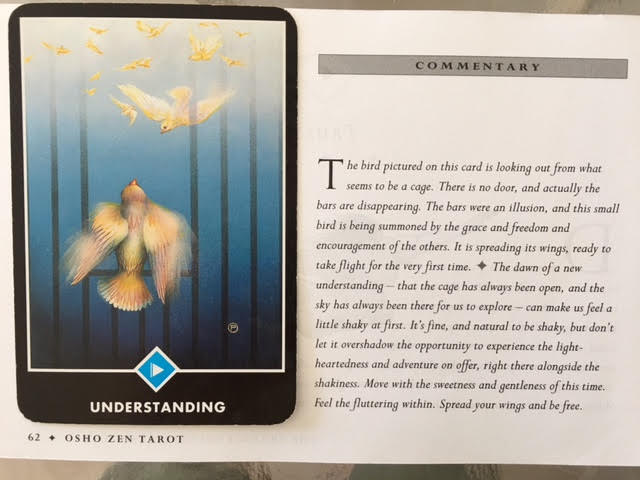If you’re anxious, you’re living in the future.
If you’re at peace, you’re living in the present.
Lao Tzu (Laozi), ancient Chinese philosopher and writer
We have been teaching this concept in SCS (energy medicine and linguistics) for decades, but I did not know the awareness of how emotions are related to our orientation in time was shared by Lao Tzu in ancient times. This idea is the basis for the Emotional Freedom audio. It makes me wonder how much other truth we are just now noticing that has been around. Perhaps we are all conditioned, much like Mohini.
Mohini, a white tiger, lived in a zoo. For many years her home was limited to a cage. She ate, slept, and paced in her twelve-by-twelve foot space.
Even after the zoo created a large natural habitat for her—complete with rolling hills, mature trees, and a pond—Mohini lived the remainder of her life pacing in one small 12X12 corner.
Everyone was shocked at her foolish programmed behavior, but are humans that much different? Learning about timelines (See Healing with Language: Your Key to Effective Mind-Body Communication, Bowman and Basham) and verb tenses really does empower you to help others and to help yourself. Awareness of the significant impact language has on our behavior is key!
When people are experiencing a problem—a stuck state—they often use an all-encompassing present tense: “I can’t learn new things” or “my supervisor is a jerk.” Notice what happens when the verb tense changes. “Learning new things has been difficult,” or “my supervisor has been a jerk.”
When a person seems “stuck” in a state or in the experience of a problem, he or she will often use a simple verb tense: “I am depressed.” Simply changing the verb to a progressive tense may help the individual see him- or herself as moving through a particular state or problem: “So you have been feeling depressed.”
We can all listen for the verb tenses people use when talking about their problems. We can skillfully use verb tenses to help others move problems into the past and solutions into the present and the future.
It is also helpful to think about the way you can use your knowledge of timelines and verb tenses to better understand your own problems and/or find appropriate solutions.
Remember that the universal present tense exists through time. When you say that something or someone is, by implication the tense includes past, present, and future: “I am depressed” or “Bob is a jerk.” Shifting to the past tense helps move the problem into the past: “I was depressed.” Using the past tense for such expressions also helps limit the context in other ways: “Bob was being a jerk when. . . .”
While in many ways our mammalian brain allows us, like Mohini, to live our lives captive by our own past experiences, we also have a human brain and you can step free from the trances that have limited your freedom. Freedom is possible!
This Page of Water [Understanding] card from the Osho Zen Tarot Transcendental Game of Zen deck speaks to the climate of freedom that is our true nature.

Tara Brach calls this unfolding the wings of acceptance. In Radical Acceptance: Embracing Your Life with the Heart of A Buddha, she writes, “When we are caught in the trance of unworthiness, we do not clearly recognize what is happening inside us, nor do we feel kind. Our view of who we are is contorted and narrowed and our heart feels hardened against life.” (p. 27)
I love these additional words from the commentary on the Understanding card, too:
You are out of jail, out of the cage; you can open your wings and the whole sky is yours. All the stars and moon and the sun belong to you. You can disappear into the blueness of the beyond…. Just drop clinging to this cage, move out of the cage and the whole sky is yours. Open your wings and fly across the sun like and eagle. In the inner sky, the inner world, freedom is the highest value—everything else is secondary, even blissfulness, ecstasy. There are thousands of flowers, uncountable, but they all become possible in the climate of freedom.
By living in the reality of this climate of freedom, we notice our thoughts. We take responsibility for our emotional reactions and change our lives. We do not have to live our lives like we were in a cage. We have the opportunity to enjoy the freedom that is ours.
Changing the verb itself is a very smart way to alter the interpretation of a statement of limitation. Consider using feel for conditions you wish to be temporary and am for conditions you want to be permanent. “I feel tired.” “I am confident.” “I feel lonely.” “I am capable of enjoying friends and family.”
I feel sad that Mohini died not knowing she was free to roam her new habitat, but I am excited that we know the sky is the limit because freedom is our true nature.
